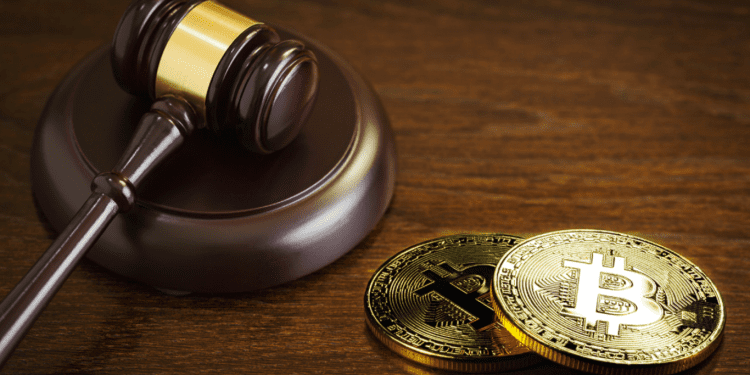- Coinbase, Robinhood, and U.S. commodities regulatory agency representatives will discuss the “Digital Asset Market Structure Discussion Draft,” aiming to redefine digital assets and establish a comprehensive statutory framework for regulation.
- The proposed legislation prioritizes providing clear guidelines governing digital assets, fostering innovation, closing regulatory gaps, and maintaining robust consumer protections in the rapidly evolving crypto landscape.
- With over one-fifth of Americans now owning and using cryptocurrencies, and recent events like Binance’s charges from the U.S. Securities and Exchange Commission, comprehensive and precise regulation has become increasingly crucial.
A groundbreaking discussion on cryptocurrency legislation is set to take place on June 6, involving key players from financial technology giants Coinbase and Robinhood, as well as prominent figures from the U.S. commodities regulatory agency. The conversation will focus on a proposed bill that could redefine specific cryptocurrency tokens as digital commodities and introduce other innovative changes.
Active and former Commodity Futures Trading Commission (CFTC) members will dissect the “Digital Asset Market Structure Discussion Draft,” unveiled on June 2 by Republican congressmen Patrick McHenry and Glenn Thompson. The primary goal of this legislation is to provide a robust statutory framework for regulating digital assets, promoting clarity and innovation while filling existing regulatory gaps. Consumer protection remains a central focus throughout the development of this legal structure.
The draft has received praise from influential voices in the crypto world, including Grewal, who commended its all-encompassing approach. He emphasized the importance of bipartisan collaboration in ensuring the swift passage of this groundbreaking bill.
The proposed legislation aligns with Coinbase’s long-standing appeal for more precise guidelines governing the crypto industry. This call for regulatory clarity has been amplified by recent events, such as the U.S. Securities and Exchange Commission filing 13 charges against Binance, a major competitor.
Grewal also underscored the shortcomings of existing regulations, arguing that the diverse nature of digital assets makes it difficult for them to fit neatly into predefined categories. Cryptocurrencies encompass a wide range of classifications, from commodities to securities, as well as entirely new constructs that defy traditional classification systems.
The need for comprehensive regulation becomes increasingly urgent as more than one-fifth of Americans own and use cryptocurrencies. Implementing such a law in a rapidly changing financial landscape is wise and necessary.
CFTC Steps Up Crypto Exchange Oversight
The U.S. Commodity Futures Trading Commission (CFTC) has been intensifying its efforts to regulate the cryptocurrency exchange market, ensuring compliance and safeguarding U.S. customers. The Commission has recently filed civil enforcement actions against Binance and its founder, Changpeng Zhao, while also issuing investor alerts concerning funds trading in Bitcoin futures. Additionally, the CFTC has warned DeFi crypto exchanges about protecting U.S. customers in the digital asset space.
The regulatory body alleges that Bitfinex offered unregistered trading services in Bitcoin, Ether, and Tether to U.S. customers. As a result, the CFTC is closely monitoring major crypto exchanges like Binance, Kraken, Coinbase, and Crypto.com to ensure they adhere to established regulations and protect clients from potential fraud or risks associated with virtual currency trading.














